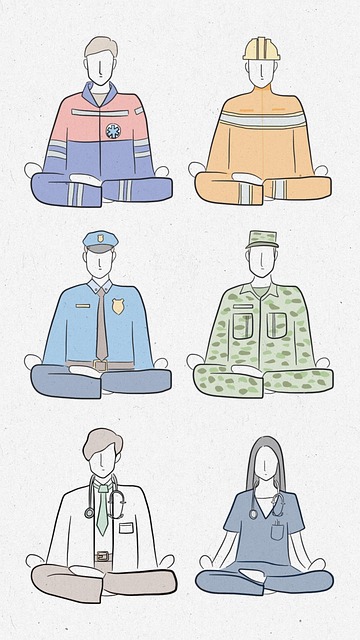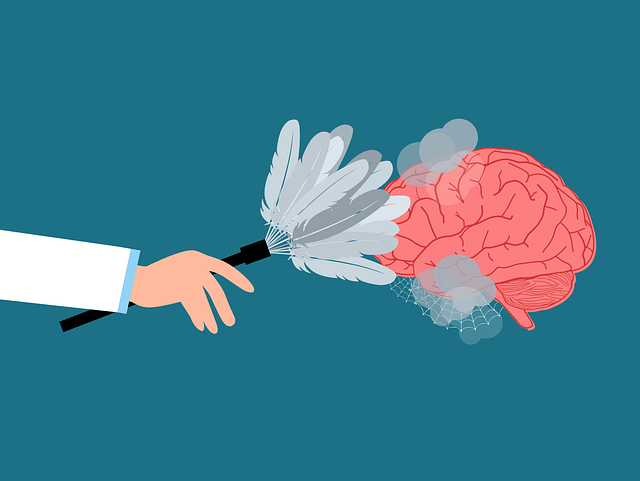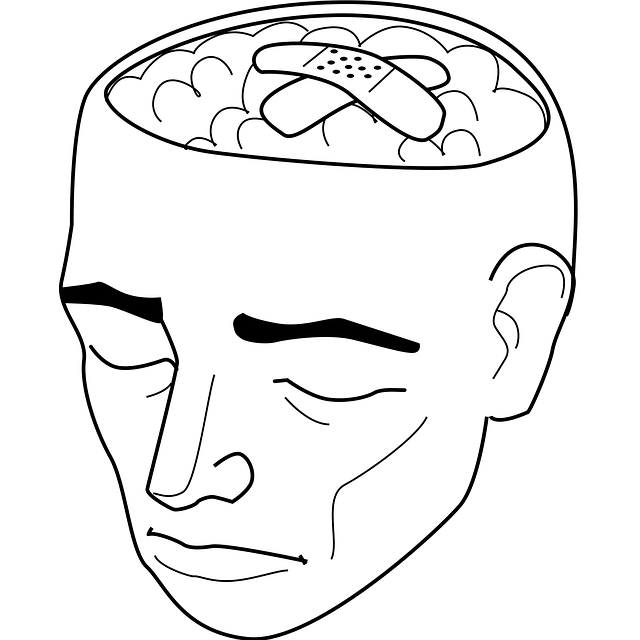The digital age poses unique challenges for social connection, particularly for adults with terminal illnesses or mental health conditions like anxiety and depression. Social Skills Training (SST) offers a solution by teaching communication, empathy, and relationship-building skills through therapy. Tailored sessions help navigate social situations, manage emotions, and foster meaningful relationships, improving quality of life. In therapy, patients learn active listening, express themselves clearly, and engage in open dialogue, facilitating better connections with loved ones and healthcare providers. Supportive environments, community outreach, and mental wellness coaching enhance dignity, belonging, and overall well-being during their final journey, addressing both social and mental health needs.
Social skills training is a powerful tool for improving mental health, especially for individuals facing terminal illnesses. This article explores the intricate link between social interaction and well-being, highlighting how therapy can enhance communication and build connections for adults with terminal conditions. We delve into practical strategies to foster supportive environments, offering valuable insights for healthcare professionals and caregivers. By understanding these approaches, we can significantly impact the lives of those navigating their mental health journeys alongside life’s final chapters.
- Understanding the Connection Between Social Skills and Mental Health
- The Role of Therapy in Enhancing Social Interaction for Adults with Terminal Illnesses
- Strategies for Improving Communication and Building Connections
- Creating a Supportive Environment for Social Skills Training
Understanding the Connection Between Social Skills and Mental Health

The connection between social skills and mental health is a profound one, often overlooked yet deeply significant. In today’s digital age, where interactions are increasingly virtual, fostering robust social connections can be challenging, especially for individuals dealing with mental health conditions. Conditions such as anxiety, depression, or even terminal illness can isolate people from their support networks, leading to a decline in social skills and overall well-being.
Social Skills Training (SST) emerges as a powerful tool in addressing this issue. Through targeted interventions, SST helps individuals develop and enhance communication, empathy, and relationship-building abilities. For adults facing terminal illnesses, therapy that incorporates mindfulness meditation and emotional well-being promotion techniques within SST can be transformative. By learning to manage their mental health while improving social interactions, these individuals can navigate their final journey with enhanced dignity and connectedness.
The Role of Therapy in Enhancing Social Interaction for Adults with Terminal Illnesses

For adults living with terminal illnesses, social skills training through therapy can be a powerful tool to enhance their quality of life and overall well-being. Many individuals struggle with social interaction due to the emotional and physical challenges associated with their conditions. Therapy offers a safe space for them to practice and develop essential social skills, improving their ability to connect with others. Through tailored sessions, therapists can help these adults navigate social situations, manage any anxiety or depression that may arise, and foster meaningful relationships.
This therapeutic approach is particularly crucial in addressing the mental health aspects often overlooked in terminal illness care. By focusing on mood management and stigma reduction efforts, therapy can empower patients to engage more confidently in social settings. It encourages them to participate in activities they enjoy, maintain friendships, and build a support network that understands their unique challenges. The role of therapy here is transformative, allowing adults with terminal illnesses to embrace their social connections as an integral part of their care and personal growth journey, in line with broader Mental Health Policy Analysis and Advocacy initiatives.
Strategies for Improving Communication and Building Connections

In the context of therapy for adults with terminal illness, improving communication skills is a vital step in fostering meaningful connections and enhancing overall well-being. This involves learning active listening techniques to understand others better and expressing oneself clearly. Therapists can guide individuals through exercises that promote open dialogue, encouraging patients to share their feelings, fears, and hopes. By practicing these skills, patients can navigate conversations more effectively, whether it’s with family, friends, or healthcare providers.
Building connections goes hand in hand with communication; it requires a combination of emotional regulation strategies and crisis intervention guidance. Community outreach program implementations can play a significant role here by providing platforms for social interaction and support groups. Through these initiatives, individuals facing terminal illness can find comfort in shared experiences, build friendships, and create a sense of belonging. Such programs often offer valuable crisis intervention resources and guidance on managing emotional challenges associated with their condition, thereby improving overall mental health.
Creating a Supportive Environment for Social Skills Training

Creating a supportive environment is paramount for effective social skills training, especially when catering to individuals with mental health conditions or those facing terminal illnesses. This involves fostering a safe and non-judgmental space where participants feel comfortable expressing themselves freely. A warm atmosphere encourages openness, which is crucial for emotional healing processes. The setting should promote active engagement, allowing individuals to practice new social skills in a controlled yet realistic manner.
For adults with terminal illnesses, social skills training can be transformative. Through tailored programs and activities, they can develop or regain the confidence needed to interact socially. This not only enhances their quality of life but also provides them with a sense of belonging and purpose. Mental wellness coaching programs can further support these individuals by offering personalized strategies for managing anxiety and improving communication, ultimately contributing to improved mental wellness podcast series production outcomes.
Social skills training is a powerful tool in supporting individuals with mental health conditions, particularly those facing terminal illnesses. By combining therapy with targeted strategies, we can enhance communication, foster connections, and create supportive environments that promote healing and well-being. For adults with terminal illnesses, these efforts can significantly improve their quality of life and overall experience during this challenging period.












